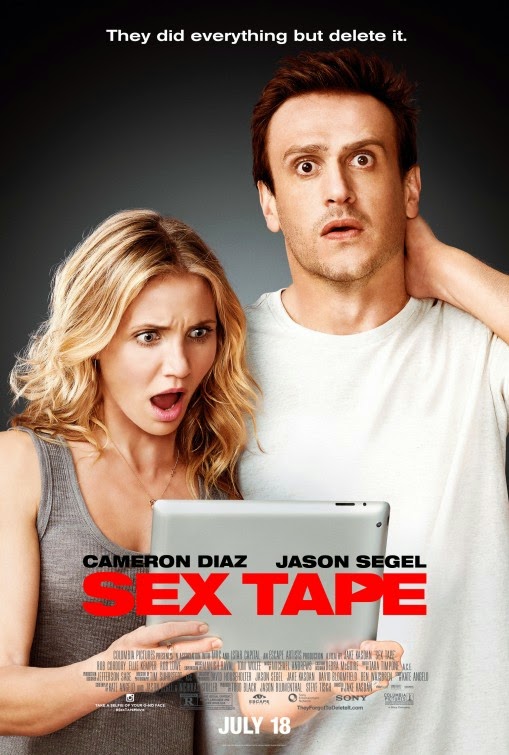The Sparks Brothers (2021)
Duran Duran. Depeche Mode. Pet Shop Boys. New Order. You know all of them, but have you ever heard of Sparks, "your favorite band's favorite band"? No? Join the club, but you will actually want to join the Sparks fan club after seeing the documentary “The Sparks Brothers,” an affectionate, informative, and sneakily poignant celebration of the overlooked electronic pop music duo from filmmaker Edgar Wright (2017’s
“Baby Driver”). Without snubbing the uninitiated (like a music snob does when a band they’ve adored for decades suddenly goes mainstream), Wright invites everyone to finally meet these J.D. Salinger-level enigmas, curiosities, and singular genuine artists who have earned their cult following in “the ecosystem of music.” Welcoming new fans with a loving introduction, “The Sparks Brothers” is like a delightfully persuasive breakthrough for this secret-handshake band.

Made up of brothers Ron and Russell Mael, Sparks was not widely known but did make an influential mark with their satirical lyrics and personality-filled stage presence. Ron, the lyricist and keyboardist with his iconic Hitler/Chaplin pencil mustache, used his socially awkward, consistently deadpan shtick to comic effect, while Russell was the vocalist and more of the handsome ladies’ man (even ask the Go-Go’s member Jane Wiedlin, who recorded “Cool Places” with Sparks in 1983). Though described as “the best British band to come out of America,” the five-decade-spanning Sparks didn’t even hail from the UK (but from sunny California), and you wouldn’t be the first person to think otherwise. In fact, these musically inclined brothers were wildly popularized first in Europe and appeared on the British music chart program Top of the Pops.

Comprised of archival footage, performance videos, talking heads (shot in black and white) from admirers and the brothers themselves, and stop-motion animation, “The Sparks Brothers” is like an art-pop scrapbook come to idiosyncratic life. The film itself embodies Sparks’ eccentric, almost-otherworldly essence and their audacious creativity, while still retaining their one-of-a-kind mystique. In remaining consistent to their mystery, the brothers even hilariously end the film with “facts” about each other. From their indelibly bold album covers and familiar but fresh sound, Sparks was—and still
is—wacky, playful, and smart. Having created 345 songs throughout their career, they seemed to always be pushing boundaries, reinventing themselves, and shaking up pop music with their synthesizer, punk-attitude sensibilities. For instance, one late-career song, “My Baby’s Taking Me Home,” was just that title itself repeated over and over 100 times, albeit so hypnotic in its repetition. More than just a novelty band, the brothers didn’t care about fame and commercial success, but as true creatives, they wanted to make art for art’s sake.

Edgar Wright, clearly a music-loving moviemaker, is such a “fanboy” that he even credits himself as such when making himself one of the contributors to the talking heads. Like Wright and every other fan (Jason Schwartzman, Fred Armisen, Mike Myers, ‘Weird Al’ Yankovic, Beck, Jack Antonoff, Flea, Amy Sherman-Palladino, and many more), they were waiting for the world to get wise and give Sparks credit. Then again, if Sparks were popular, it wouldn’t be Sparks. When Wright does get Ron and Russell in front of the camera, they come across as very candid and completely themselves, while also living up to their goofy, weird-for-the-stage personas. Besides music, the viewer even comes to learn that Ron and Russell are fans of the cinema, especially French New Wave, that they even tried carrying out projects with Jacques Tati and Tim Burton. Neither endeavor stuck (although they did make screen appearances, like in the 1977 disaster movie “Roller Coaster”), but the timing finally became right with Leos Carax, who directed Ron and Russell Mael’s screenplay for the upcoming Marion Cotillard-Adam Driver film “Annette.” Still, they’re human beings. Beyond being Sparks, Ron and Russell are resilient and determined, and to this day, they are men of rituals, like going on their solo morning walks and getting their coffee alone.

“The Sparks Brothers” does what the best band documentaries can do, allowing one to fully understand the appeal and enduring fandom of the subject. For a film that exhaustively covers a career from 1967 to today and runs an intimidating 135 minutes, it’s briskly paced and always moving like a runaway bride. Not every documentary has to take a warts-and-all approach. As Wright proves here, an unabashedly celebratory labor of love holds the same level of power when it makes the unsung creative in us feel seen.
Grade: A -
Focus Features is releasing “The Sparks Brothers” (135 min.) in theaters on June 18, 2021.






Comments
Post a Comment